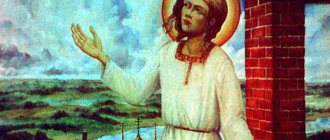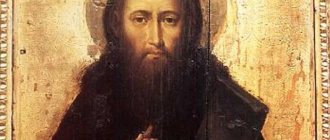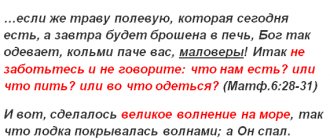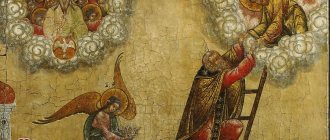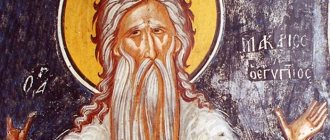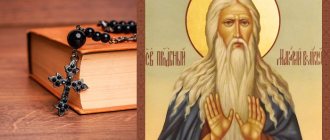THEODOSIUS I
THEODOSIUS I Flavius the Great (Flavius Theodosius Magnus) (346/347–395), rom. Emperor (from 379), canonized Catholic. Church. The last ruler of a united Rome. empires. Native of Northern Spain, F. I was the son of a prominent Roman. a military leader who fell into disgrace and was executed under the Emperor. Valentinians I. Made a brilliant military effort. career: successfully fought with the Sarmatians on the Danube, in 376 he received military service. command in the province Illyricum. In 379, after the heavy defeat suffered by the Romans from the Visigoths in the Battle of Adrianople, and the death of the emperor. Valens (378), became co-emperor. Gratian, having received the east under his jurisdiction. part of the empire. Having achieved supreme power, he proved himself to be a talented commander and a capable diplomat. Having won a number of victories in the war with the Visigoths, he entered into negotiations with them. In 382 he concluded a peace treaty, according to which the Visigoths were given the opportunity to settle as federates of the empire in Lower Moesia and Thrace. As a result of this and other decisions of F. I, the process of barbarization of Rome intensified. army. In the East, F. I managed to reach an agreement with the Sassanid power on the division of Armenia into spheres of influence (387). In the field of spiritual life, he carried out a number of decisive measures that radically changed religion. situation in Rome. empires. Issued the edict “On the Catholic Faith” in 380 in Thessalonica. In 381, the Second Ecumenical Council took place in Constantinople (see Ecumenical Councils), at which it was clarified and finalized. The Creed was formulated and the status of the Nicene religion as a state religion was established. religions Rome. empires. According to the decision of the council, episcopal sees could only be occupied by followers of the Nicene religion. Being under the spiritual influence of St. Ambrose of Milan, F. I not only persecuted heresies, primarily Arianism, but also consistently eradicated everything that was associated with paganism. In 381–385, persecution of pagans began: sacrifices were prohibited under pain of death, and pagan temples were ordered to be closed and destroyed. In 391, large fines were established for the worship of pagan gods; after 393, the Olympic Games ceased to be held. For religion In politics, Christian writers awarded F. I the epithet “great.” F. I had to suppress the revolts of the usurpers: in 388 - Magna Maxima, in 394 - Eugenius. From 394 he ruled alone over all of Rome. empire. Before his death, he divided the state between his sons: the eldest, Arkady, got the east. part with its capital in Constantinople (future Byzantium), the younger, Honorius, - zap. territories in 395–402 with the capital in Mediolana (modern Milan), from 402 in Ravenna.
Do works of mercy
The magnitude of mercy is determined not by volume, but by the breadth of the human soul. We all remember the story of the widow's mite, small in monetary terms but large in its spiritual significance. A deed of mercy can be a kind word or a smile that will cheer up a despondent person. Participation is better than indifference, and besides, it is a good habit that will pleasantly change your life. A person who helps his neighbor on a regular basis lives a more fulfilling life, and most importantly, more useful for those who are nearby.
The Monk Theodosius fed the inhabitants of the surrounding area of his monastery during a famine. He established hospice houses, separate hospitals for monks and laymen, as well as shelters for the elderly on the territory of the monastery. And given the heterogeneous composition of the parishioners, he held services in the church in several languages.
Legislation
Absorbed in the difficult task of protecting the security and integrity of the empire, Theodosius did not have time to develop a plan for transforming the internal order. Here, too, he sought to demonstrate only firm power, so that the strength of the imperial government would not be further shaken. In later legislative codes, many energetic orders of Theodosius were preserved, but his measures of severity concerned mainly the weak elements of society, especially the increasingly impoverished local nobility (curials). The burden of taxes was not eased, since the state was constantly in need of enormous funds; some uprisings (in Berita and Antioch) are explained precisely by ruthless fiscalism. Only attempts were noticed to somewhat soften criminal law and legal proceedings, under the influence of the church, and to regulate family law in the spirit of Christian concepts. The Emperor cared a lot about the security police and public hygiene; he decorated the cities (especially Constantinople) with luxurious and useful buildings, but did not soften administrative arbitrariness and intolerable serfdom.
Literature
- N. Schiller, “Geschichte der römischen Kaiserzeit” (Gotha, 1887, vol. 2);
- G. Boissier, “La fin du paganisme” (there is a Russian translation).
When writing this article, material was used from the Encyclopedic Dictionary of Brockhaus and Efron (1890-1907).
| Predecessor: Valens and Gratian | Roman Emperor (with Gratian and Valentinian II) 379-395 | Successor: Honorius (West) and Arcadius (Byzantium) |
Characteristics of activities
Richly gifted by nature, Theodosius led a temperate lifestyle, was a good husband and father, and an intelligent and energetic leader in the state. The thorough education he received prepared him to grasp in thought the task of the sovereign, to understand its difficulties and to illuminate its execution with a reasonably constructed plan. He again put forward the motto of unity and confidently, ardently defended it from the outside - against the barbarians who were oppressing the empire, and inside - against the constantly threatening dismemberment. An outstanding commander, well-versed in all the weapons of Roman strategy, careful in thinking about actions, but quick in their execution, Theodosius was also a skilled diplomat and a skillful administrator. Among the crushing figures of the era, he showed a certain greatness, although he did not reveal original political creativity and new reform ideas: he could only protect what had developed. Unbridled character, severe intolerance and narrowness of religious sentiment cast a dark shadow on his spiritual image. These properties prevented Theodosius from remaining a just man and harmed the interests of his own power. The administrations of the East and West after Theodosius came to power retained their separateness, but the co-rulers always worked in accordance with each other. Theodosius did not undertake intrigues against Western August, respecting the principle of partition; in fact, his authority extended to the entire Roman world.
Fight for your ideals
You can silently agree with everything that happens around you, or you can defend the bastion of your values, not allowing anyone to cross its borders. Having convictions makes you feel life and your solidity, belonging to something higher and brighter. Of course, you need to fight for your faith, using spiritual and intellectual strength. A life with beliefs is a thousand times stronger than a life without them.
The Monk Theodosius, it would seem, was a quiet monk in the remote desert of Palestine. But as soon as the heresy of Eutyches and Severus arose, who did not recognize the priesthood and sacraments, the saint raised his voice in defense of the shrines of Orthodoxy. He wrote an appeal to the emperor, who humbled himself and abandoned his delusion. Later, when the monarch returned to heresy again, Theodosius went to Jerusalem and there publicly repeated his denunciation, warning the believers against deviating into untruth. For this he was imprisoned, but was released after the death of the emperor. And then he calmly returned to the monastery to peacefully end his worthy life on earth and go to the Lord.
Vladimir Basenkov
Bibliography
- Bagnall, Roger S.; Alan Cameron; Seth R. Schwartz; Klaas A. Worp (1987). Consuls of the Later Roman Empire
. Oxford University Press. ISBN 1-55540-099-X. - Bayliss, Richard (2004). Provincial Cilicia and the Archeology of Temple Transformation. Oxford: Archaeopress. ISBN 1-84171-634-0.
- Bettenson, Henry (1967). Documents of the Christian Church. 1st edition 1943 (second edition). Oxford University Press.
- Brown, Peter (2012). Through the Eye of a Needle: Wealth, the Fall of Rome, and the Rise of Christianity in the West, 350–550
. Princeton University Press. ISBN 978-0-691-15290-5. - Cameron, Alan (2010). The Last Pagans of Rome
. Oxford University Press. ISBN 978-0-19-974727-6. - Singing, Alicia M. (2006). “On the baetic origin of Theodosius I the Great and his incredible birth in Cauca
de
Gallesia
.”
Latomus 65
(2):388–421. ISSN 0023-8856. JSTOR 41544102. - Errington, R. Malcolm (1996). "Accession of Theodosius I". Clio 78
(2):438–453. S2CID 193468287. doi: 10.1524/klio.1996.78.2.438. - Errington, R. Malcolm (1997). "Christian Accounts of the Religious Legislation of Theodosius I". Clio 79
(2):398–443. S2CID 159619838. doi: 10.1524/klio.1997.79.2.398. - Errington, R. Malcolm (2006). Roman-Imperial Politics from Julian to Theodosius
. Chapel Hill: University of North Carolina Press. ISBN 0-8078-3038-0. - Glenn, Hinson, E. (1995). The Church Triumphant: A History of Christianity to 1300. Mercer University Press. ISBN 0-86554-436-0. OCLC 32509437.
- Graf, Fritz (2014). "Exposition of the Law at Ferragosto
: The Roman Visit of Theodosius in the Summer of 389."
Journal of Early Christian Studies 22
(2): 219-242. S2CID 159641057. doi: 10.1353/earl.2014.0022. - Heather, Peter (2008). Fall of the Roman Empire. Madrid: Critique. ISBN 978-84-8432-692-2. Retrieved November 12, 2013.
- Hebblewhite, Mark (2020). Theodosius and the Limits of the Empire
. London: Routledge. ISBN 978-1-138-10298-9. S2CID 213344890. doi: 10.4324/9781315103334. - Kelly, Gavin (2013). “Political crisis of 375–376. AD" . Chiron 43
:357–409. Archived from the original on June 20, 2022. - Kalos, Mayastina (2019). Religious dissent in late antiquity, 350–450
. Oxford University Press. ISBN 978-0-19-006725-0. - Lippold, Adolf (1973). "Theodosius 10", Realencyclopedia
of Classical Antiquity
, appendix 13, columns 837–961
. - Majeska, George P. (1984). Russian travelers to Constantinople in the fourteenth and fifteenth centuries
. Dumbarton Oaks Research Library. - Laban, Luke; Mulryan, Michael, ed. (2011). Archeology of Late Antique "Paganism"
. Leiden: Brill. ISBN 978-90-04-19237-9. - Lenski, Noel (2002). Failure of the Empire
. University of California Press. ISBN 0-520-23332-8. - McLynn, Neil B. (1994). Ambrose of Milan: Church and Court in the Christian Capital
. Berkeley: University of California Press. ISBN 0-520-08461-6. - McLynn, Neil (2005). "' Genere Hispanus
': Theodosius, Spain and Nicene Orthodoxy".
En Kim Bowes; Michael Kulikovsky, ed. Spain in Late Antiquity: Modern Perspectives
. Leiden: Brill. pp. 77-120. ISBN 90-04-14391-2. - McMullan, Ramsay (1984). Christianization of the Roman Empire 100–400
AD (in English) . Harmondsworth and New York: Viking. - Norwich, J. J. (1988). Byzantium: Early Ages
. - Potter, David Stone (2004). Roman Empire in the Gulf 80–395
. ISBN 0-415-10058-5. - Roberts, J. M. (2009). History of the Station Wagon
. RBA. paragraph 328. - Rogers, Barbara Saylor (1981). "Merobaudes and Maximus in Gaul". History 30
(1): 82-105. JSTOR 4435744. - Rutery, Michael (1997). First missionary war. The Church takes over the Roman Empire (en inglés). Lid. 4. Serapeum of Alexandria. Archivado desde el original el May 31, 2010.
- Smith, RRR; Christopher Ratte (1998). "Archaeological Research on Aphrodisias in Caria, 1996." American Journal of Archeology 102
(2): 225-250. JSTOR 506467. doi: 10.2307/506467. - Vasiliev, A.A. (1948). "Imperial porphyry sarcophagi in Constantinople". Dumbarton Oaks Papers 4
:1, 3-26. JSTOR 1291047. doi: 10.2307/1291047. - Williams, Stephen; Frill, Gerard (1995). Theodosius: An Empire in a Stalemate. Yale University Press. ISBN 978-0-300-06173-4. (registration required) .
- Woods, David. “Theodosius I (379-395 AD) On the Roman Emperors
Fight at the throne
The second important group with which the central government needed to negotiate was the military of the Western Roman Empire. Here Flavius Aetius came to the fore.
Previously, this commander supported John. By order of the usurper, Aetius went to the Huns for help. He brought their army, but John had already been executed. Aspar had to negotiate with Aetius, who convinced the Huns to return home by taking the gold. Aetius himself received command of the troops in Gaul.
Flavius Aetius. (Wikimedia Commons)
The second key figure was Comite Boniface, who settled in North Africa. Aetius and Boniface sought the position of military master and intrigued against each other.
In 430, the military master Flavius Felix and his wife were killed by conspirators. In 432, Boniface received the title of military master. Aetius was made consul, hoping to calm his ambitions. The dissatisfied commander risked starting a war with Boniface. The personal armies of the two military leaders clashed in battle near Ravenna. Aetius mortally wounded Boniface with a spear, but his own army was defeated. Boniface's nephew Sebastian continued the war. Aetius fled again to the Huns and returned with their army. Sebastian was expelled, and Flavius Aetius received the coveted position of military master.
Benefits of St. Theodosius the Great
Happy Feast of the Memory of St. Theodosius the Great, Chief of the General Lives!
The Monk Theodosius the Great was born in Cappadocia into the family of pious parents Proheresius and Eulogia. The Lord gave him a beautiful voice. And already as a boy, Theodosius was ordained a reader, read and sang in the choir. The life of the saint says that even pagans came to the temple when Theodosius sang there. They enjoyed the magnificent singing and listened to the words of prayers and psalms. They became imbued with love for the beauty of the Christian faith and became Orthodox.
But the young man’s soul desired higher feats. He went as a pilgrim to the Holy Land. There, with the blessing of Elder Loggin, he settled in a cave in the vicinity of Bethlehem. Theodosius spent his time in unceasing prayer, fasting, and silence. He ate only dates and wild onions.
People began to gather around the man of holy life. So, without any special intention of Theodosius himself, a small monastery was founded. When the cave became too small for all the willing brethren to live in, Theodosius set out to look for a place for a new monastery. The Lord showed the saint a place near the Kidron River. Theodosius set up a hostel in the new monastery. Now Theodosius accepted everyone into his Lavra and refused no one. Over seven hundred monks formed a fraternal monastic family.
Miracles of St. Theodosius
Saint Theodosius performed many good deeds and miracles for the common people. He saved the only son of a poor widow from death.
Rescue of a widow's son
The mother strictly forbade her son to approach the well. But the tomboy did not disobey and, when his mother carelessly left the well open, he looked into it. Below he saw his image and laughed: the widow lived poorly, there was not even a fragment of a mirror in her house. The mischievous man laughed, made faces at himself, hung over the edge of the well, fell off and flew down. Everyone was sure that he had drowned. The mother, sobbing, looked at the well, where a neighbor was descending on a rope to get the boy’s body. “Pull,” he finally shouted.
They pulled the rope, but the first to jump out was a living and healthy boy. - How did you stay alive? - asked the mother, covering her son with kisses. “I fell into the water and almost choked, when suddenly someone took me by the hand and pulled me out of the water. It was an old man with a long gray beard. We stood with him on the water, as if on the floor, while the neighbor was climbing the rope, but he immediately disappeared as soon as the neighbor extended his hand to me.
On Sunday, the boy and his mother went to a service at the Lavra. There, pointing to Saint Theodosius to his mother, the boy whispered that Theodosius was the wonderful old man who saved him.
After the liturgy, the holy saint came up to them, stroked the naughty man on the head and said: “Do not neglect your mother” (Proverbs 23:22). Listen to her advice.
Rescue from locust invasion
The Lord loved His saint so much that nature itself obeyed him. A year after the drought, locusts descended on the fields and meadows. Millions of voracious creatures gnawed the vegetation clean. Where the living, moving carpet of locusts crawled, the trees remained bare, and the ground was black, as if a fiery, incinerating shaft had rolled across it. The entire area was threatened with famine. The people, weeping and screaming in despair, hastened to Abba Theodosius for salvation. The saint was no longer walking well. Two students, holding his hands, led him to the field. Standing at the edge of the field, Saint Theodosius said: “The Lord of heaven and earth, common to us all, commands you: fly away from here immediately.”
A cloud of locusts rose into the air, eclipsing the sun, and disappeared from view. And at night frosts struck, which did not damage the crops, but destroyed all the locust caterpillars.
Rescue of a reliable family helper
One merchant had a pack donkey, an indispensable helper for the family. The owner used it to transport his goods to the market. You can’t carry much on yourself, and the road to the market is not close! The merchant lovingly groomed the animal, cared for it, and almost never sat on it. One day, returning home after a successful market day, the merchant was in an excellent mood. Gold jingled in the wallet, gifts were waiting for his wife and children. At the Lavra of St. Theodosius, he served a thanksgiving prayer service, donated a tithe of the proceeds, and received the blessing of the rector’s father for his further journey.
Everything was going as well as possible. The obedient donkey trotted ahead of its owner, waving its tail provocatively. Home is already close, where good food and rest await him after a difficult journey. Suddenly, from the high roadside grass, a hidden lion jumped onto the donkey and plunged its sharp claws into the donkey’s side. The poor donkey screamed in terrible pain like a man. The owner grabbed his head, seeing how his most reliable assistant was dying before his eyes. - Saint Theodosius, help! - he cried, rushing at the lion with his bare hands.
Hearing the name of the saint, the animal recoiled from the animal and disappeared into the forest.
It is impossible to list all the benefits of Theodosius. How many lost people he returned to the path of truth, how many mental and physical wounds he healed. Thousands of people came to the Lavra to receive the blessing of the saint, thousands of spiritual children prayed that the Lord would extend the days of the holy saint.
Venerable Theodosius the Great



